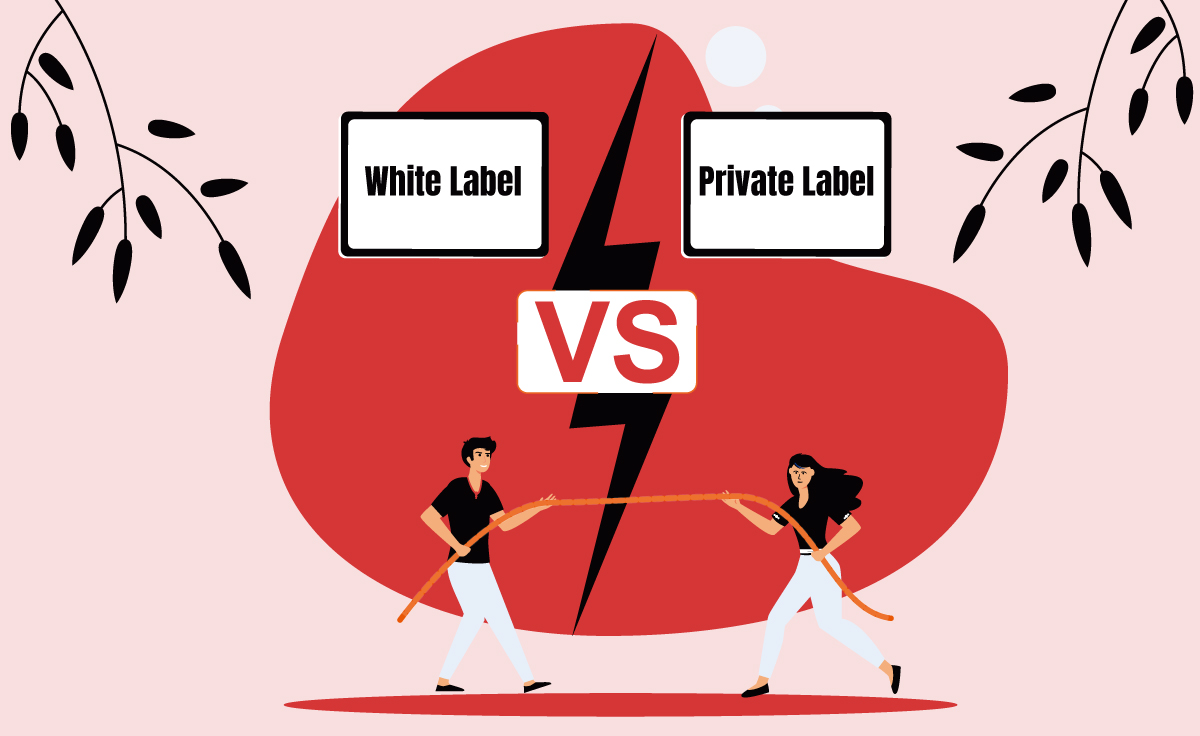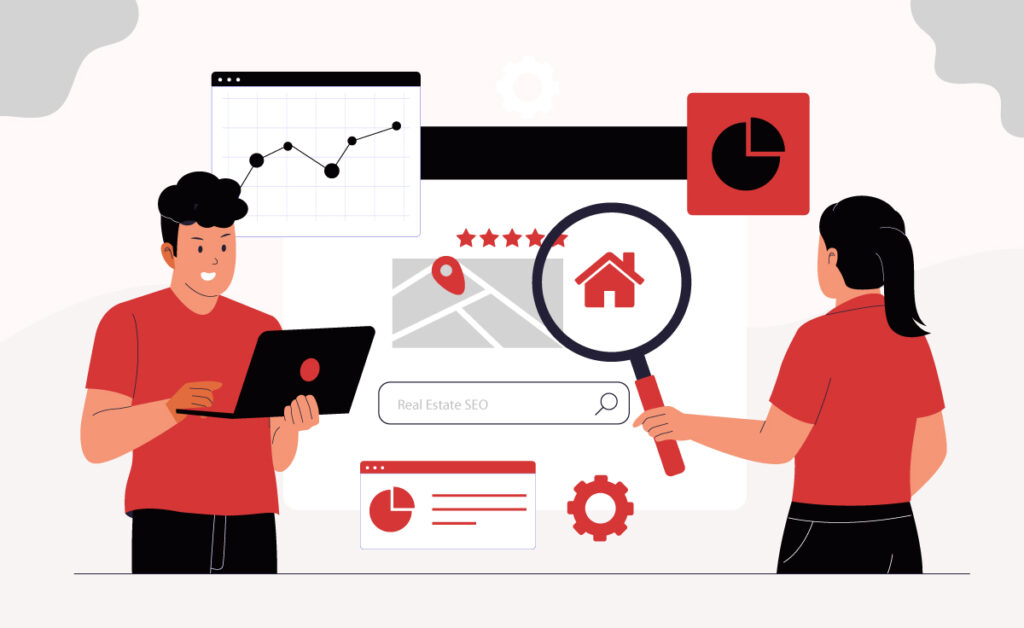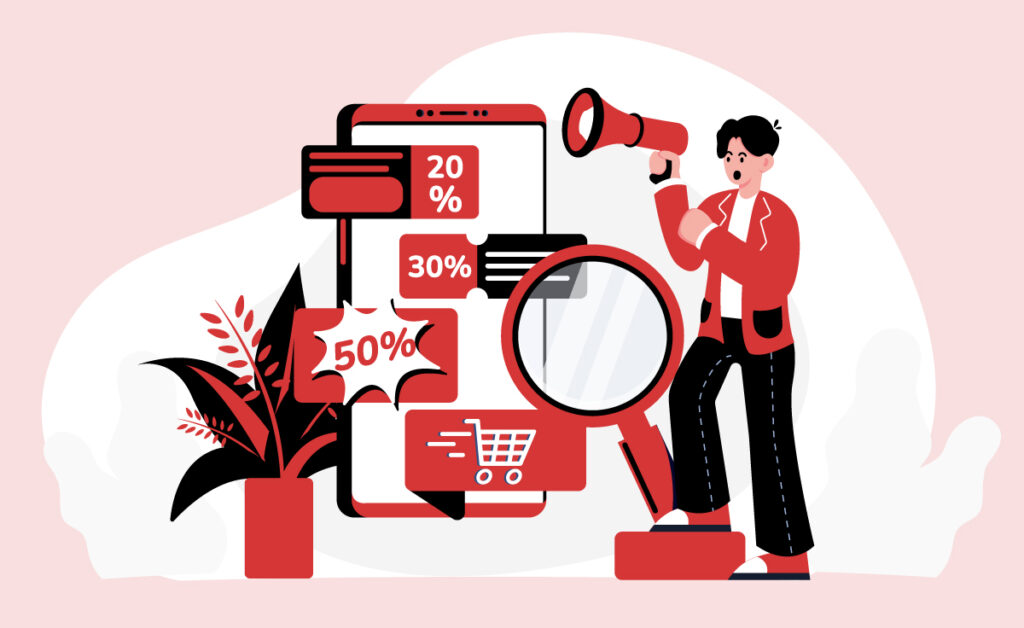Summary:
White label and private label are two ways agencies can expand services without building everything in-house.
White label is the fast, low-risk route. You resell ready-made SEO, PPC, content, or social media services under your brand, while a partner manages delivery behind the scenes. It lets you launch in days, scale without hiring, and keep costs lean, but customization is limited, and your reputation depends on partner quality.
Private label takes more time and investment but gives you complete control. You design the process, own delivery, and create unique services that strengthen your brand. Margins can be higher once you scale, but setup costs and operational complexity are much heavier.
The right choice depends on your goals: white label works for speed and flexibility, while private label is better for long-term differentiation.
Introduction
If you’re running a marketing agency, you’ve likely come across the debate of white label vs private label when thinking about how to expand your services. Both models can help you grow, but they work in very different ways.
White label is the shortcut. You tap into a partner’s ready-made SEO, PPC, content, or social media services and sell them under your own brand. It’s fast, affordable, and low risk, but you don’t own the delivery process.
Private label is the long-term play. You design the service from the ground up and control every part of delivery. It requires more time and investment, but gives you exclusivity, stronger brand authority, and the chance for higher margins once you scale.
So, when it comes to white label vs private label, which model is best for your agency? Let’s break it down.
White Label vs Private Label
If you want to add new services without building a big team from scratch, you will usually look at two models: white label and private label. Both can help you grow, but they work in different ways.
White Label: Quick Way to Start
White label lets you sell a complete, ready-made service under your brand. Your agency manages the client relationship, while a white label partner takes care of the work in the background. This could include SEO, White Label PPC Services, content, design, or social media.
What this gives you:
- You can start offering new services in days
- You can grow without hiring more staff
- You keep your costs low and your margins safe
It is like moving into a furnished apartment. Everything is ready. You just bring your essentials and start living. With white label, you plug into a system that already works, and you can begin selling right away.
Good choice if you want to grow fast, test new services, or scale without taking on big risks.
Private Label: More Control, More Ownership
Private label is different. Here you design the service. You decide the process, the features, and the quality standards. A third party then builds it for you, but you stay in charge of how it looks and works.
What this gives you:
● A service that is unique to your agency
● The chance to earn more profit once you scale
● A stronger brand position with bigger or high-value clients
This is like building your own house. It takes more time and more money, but every detail is yours. In the end, you have something no one else can offer.
Here are the key differences between the two models at a glance:
| Area | White label | Private label |
| Control | You control branding and client communication, but not the behind-the-scenes delivery. | You control branding, delivery methods, features, and full production. |
| Speed | Services can launch in days or weeks since partners already have systems ready. | Takes months to set up because you’re building delivery, processes, and staff. |
| Investment | Low setup costs. Pay per project or retainer, no heavy infrastructure. | Higher costs for staffing, tools, QA, and ongoing operations. |
| Differentiation | Moderate. You can customise reporting, branding, and strategy, but the core service may look similar to others using the same partner. | High. You can create unique features, processes, or proprietary frameworks that no competitor has. |
| Team load | Light. Partner handles most of the work; your team focuses on clients and strategy. | Heavy. Your team manages delivery, reporting, and scaling in-house. |
Comparing Costs, Control, and Branding
Here’s how the two models stack up on the biggest trade-offs:
| Factor | White label | Private label |
| Upfront cost | Low. Your partner absorbs the cost of systems and tools. | Moderate to high. You must set up your own systems and infrastructure. |
| Operating cost | Variable. You pay per project or retainer. | Fixed plus variable. You carry ongoing salaries, tools, and QA costs. |
| Control | Strong control over branding and client communication. Limited control over features or delivery methods. | Full control over both brand and delivery, including service features. |
| Quality risk | Managed by your partner’s SLAs and processes. | Managed by your own QA, SOPs, and training. |
| Time to launch | Fast. You can launch in days or weeks. | Slow. A full rollout usually takes months. |
How does the Work Flow?
When you choose between white label and private label, you’re really choosing how the work moves from your client to your agency and then to delivery.
White Label
With white label, everything is simple for your client. They only deal with your agency and your brand. You handle the relationship, strategy, and communication. Behind the scenes, your partner manages the actual delivery, from White Label SEO Services to PPC, content, design, and reporting. The client still receives a final report that looks like it all came directly from you.
What this means for you:
- You stay client-facing and protect your brand
- You don’t have to manage delivery or production
- Your main job is keeping clients happy and growing accounts
Also read: A Guide on How to Build a Successful White Label Partnership
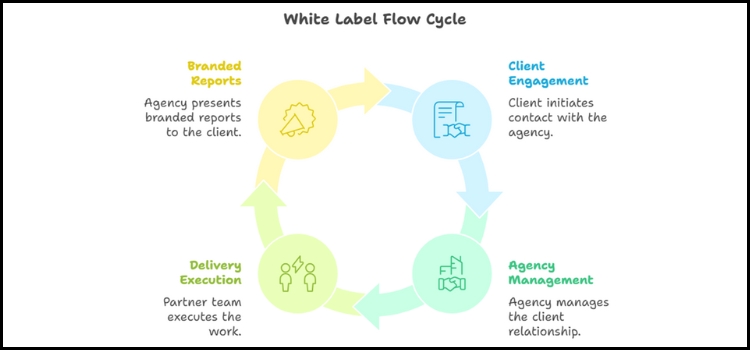
Private Label
With a private label, the client still works with your brand and your agency, but you also design how the service should be delivered. A producer or contractor follows your blueprint. Once the work is done, your team checks the quality, adds finishing touches, and then sends it to the client.
What this means for you:
- You own the process and how the service looks
- You carry the responsibility for quality checks
- You need the bandwidth to manage both client relationships and production
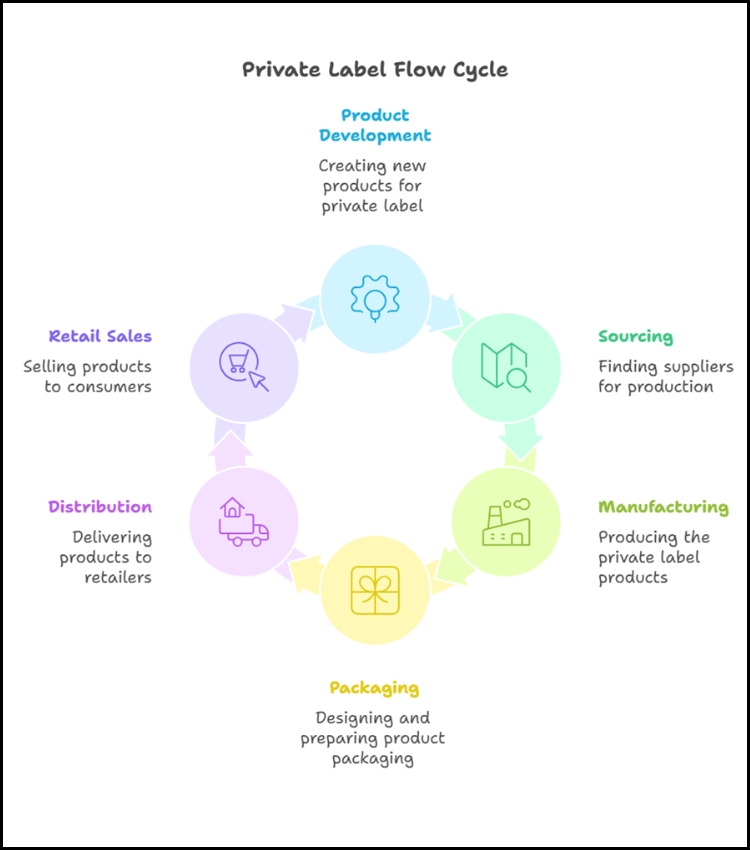
The Decision Point
It comes down to ownership.
- If you go with white label, you own the client relationship.
- If you go with private label, you own both the client relationship and the production process.
More ownership can build a stronger brand, but it also means more work, more cost, and more risk.
Benefits of White Label
As you already know, white label services for clients are like renting a furnished apartment. If you want, you can be in tomorrow. You don’t have to worry about buying the couch or fixing the sink. You just move in and start living.
Here are the four biggest advantages of white label:
● Speed to Market
You don’t need to build processes, teams, or tech from scratch. For example, agencies adopting white label SEO or PPC can launch campaigns within days or weeks.
You’re plugging into a system that’s already there and set up for demands. Compare that to the average 4-6 months it takes to build an in-house team with full onboarding, training, and tools. That’s a massive head start.
● Instant Expertise and Reducing Overheads
Hiring a senior SEO manager in the US costs a median of around $135,804 annually, according to Glassdoor. Add tools like Ahrefs, SEMrush, and paid ad budgets, and you’re looking at $5,000–$10,000 monthly fixed costs.
White label cuts those out. You pay per project or retainer to your partner, keep your profit margin, and scale with zero HR stress.
● Elastic Scaling
Demand spikes happen, and clients can suddenly want five new campaigns at once. With white label, you don’t scramble for freelancers or overwork your team. You lean on your partner.
Deloitte’s Global Outsourcing Survey shows 50% of companies outsource to handle sudden growth. That’s elasticity you can’t buy with a private label unless you overhire.
Challenges of White Label
Of course, white labelling is not all smooth sailing. Here are some of the drawbacks to consider:
● Reputation on the Line
If your partner misses deadlines or produces bad work, it’s your logo the client sees and not theirs. One bad delivery can shake years of trust.
● Limited Customisation
White label services are often pre-structured. You can brand them, but deep tailoring (custom workflows, reporting systems, proprietary tools) usually comes with limitations.
● Data Security and Compliance Pressure
If you are in the US or Europe, data compliance is a serious responsibility. Laws like the EU’s GDPR and California’s CCPA set strict rules on how personal information can be handled and shared.
When you use a white label partner, you are trusting them with client data, which means you need airtight NDAs, secure transfer protocols, and clear proof that they meet compliance standards. One mistake from your partner could put both your client relationships and your agency’s legal standing at risk.
Also read: Scaling Your Agency with White Label Solutions: Myth vs Reality
Benefits of Private Label
Now, let’s flip the script. Using a private label is like building your own home brick by brick. It’s costly and slow, but every corner fits your style. Here’s why some agencies prefer it:
● Total Brand Control
Everything is yours, from processes to delivery and quality checks. Nothing is outsourced, and no one outside your agency works for your client. You set the rules, and execution mirrors your brand voice end-to-end.
● Bigger Long-Term Margins
While you bleed cash upfront, your margins can be higher once you’ve scaled. Instead of paying a partner cut, you pocket the full client retainer. If you build a 10-person SEO team and run 50+ projects annually, that’s potentially 20–30% more margin compared to white label reselling.
● Tailored Client Experience
You can design custom dashboards, proprietary reports, or even your own analytics tools. For high-ticket clients, this level of personalisation is often the deal closer.
Challenges of Private Label
But let’s be honest: private labels are not for the faint of heart. It comes with some serious challenges, which explains why agencies go for white labelling instead.
● Heavy Capital Outlay
Building a team of 5–7 specialists in the US means at least $400,000+ yearly in salaries, plus tools and benefits. Add office space, compliance, and admin, and you’ve already outspent most small agencies’ budgets.
● Long Ramp-Up
Unlike white label, where you can start delivering a service next week, private label takes months before you’re client-ready. That’s lost time in a competitive market.
● Operational Complexity
HR headaches, staff turnover, tech integration, compliance, you carry all of it. Drop the ball, and you risk having unhappy clients and financial strain.
FAQs
Is white label better than private label?
It really depends on what you need right now. If you want to launch new services quickly without hiring more staff, white label is the best way to go. Private label works better if you’re ready to invest time and money to build something unique and control every detail. Many agencies start with white label to test the waters before moving into private label when they have steady cash flow.
Is private label more profitable?
Yes, but usually only once you’ve grown enough to spread out those setup costs. With private label, you own the process, control the features, and decide your margins. However, you may need to spend more upfront on production, systems, and people before the big profits start rolling in.
What are the disadvantages of private label products or services?
The biggest one is the time and complexity involved. You’ll be dealing with vendor management, setting up processes, and quality control while trying to keep delivery consistent. If demand drops unexpectedly, you might get stuck with costs or idle capacity that eats into profits.
What are the benefits of both models?
White label is fast, affordable, and easy to scale when you want to grow without big risks. Private label takes longer but gives you full control, higher margins, and a chance to stand out with something original. Many agencies use both models together: white label for quick results and private label for long-term growth.
Final Word
So, which one of the two models should you pick? If you want speed, low-risk growth, and the ability to sell today without worrying about delivery, build a strong white label relationship. If you’re playing the long game, ready to invest big, and want total control, private label could be your path.
Both can work. The real question is: what does your agency need now?
And if you are looking for white label services, Justwords Digital can help you. We’ve been helping agencies worldwide scale through white label services for clients since 2010. As an award winning white label digital marketing agency, we have a strong track record of achieving high results, all while maintaining data security and compliance.
Book a discovery call with us to plug into our services, which are built for clients across content marketing, SEO, PPC, web design, and White Label Social Media Management.

